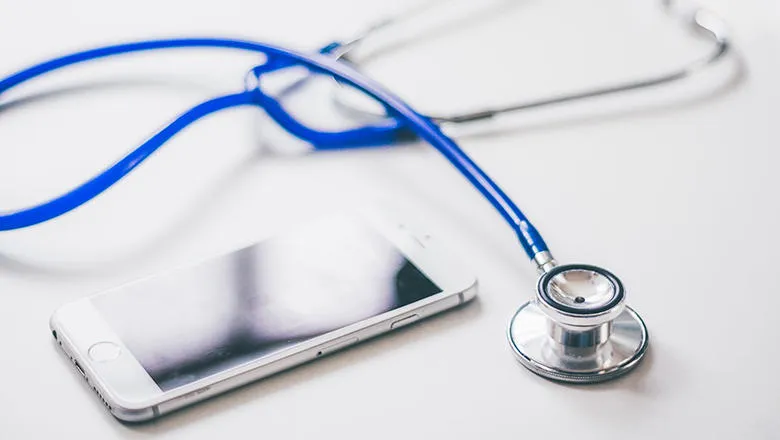Healthcare systems are fragile in the poorest communities of low and middle-income countries. COVID-19 threatens to decimate these fragile systems. We need to keep health workers safe while enabling them to continue to provide the care needed in their communities. By training health workers to deliver care via their mobile phones they can become a positive example of social distancing. They can also use this method to provide advice on managing COVID-19. Using their phones they can enable their patients to continue to manage other infectious diseases and health conditions such as diabetes and hypertension that are still major killers in these communities, and support households providing the inevitable end of life care for many.
Jackie Sturt, Professor of Behavioural Medicine in Nursing and co-author
18 May 2020
How COVID-19 mobile consulting could have long term benefits for communities with limited healthcare
Remote health consultations could increase access to quality healthcare in low- to middle-income countries.

Researchers from the University of Warwick and King’s College London are providing training to healthcare workers from low- to middle-income countries to help integrate remote consulting practices during COVID-19. The team have also recommended that this practice should not only be adopted widely during the pandemic, but also in the longer term to provide quality healthcare.
By implementing remote consulting practices - such as consulting by mobile phone or mobile app - to maintain services during COVID-19, health services in countries in Africa and South Asia could provide communities permanent access to healthcare that they previously struggled to establish.
Providing leadership training to implement remote consulting
Researchers at the University of Warwick and the Faculty of Nursing, Midwifery & Palliative Care at King’s College London have developed and implemented a training course with researchers at St Francis University College in Tanzania designed to equip nurses, doctors and medical officers in leadership roles with the knowledge and skills to integrate remote consulting into practice in their local service.
The project is funded by the UK Department for International Development, the UK Economic and Social Research Council, the UK Medical Research Council and Wellcome. It is based on research recently published in the journal Digital Health that provides a framework for healthcare leaders to consider how to implement it in their own services. The training takes the form of a short course using blended learning through an app on a smartphone and facilitated through social media. These healthcare leaders cascade the learning to other health workers in their service.
Raising awareness among local health services
Using mobile technology to see patients is part of the World Health Organisation’s COVID-19 response strategy, but detail there is limited. The researchers have put together a policy brief written in response to the COVID-19 pandemic to raise awareness of remote consulting and encouraging healthcare leaders in low- to middle-income countries to undertake the training and disseminate the knowledge within their local health service.
It forms part of a wider project looking at how to deliver remote consulting to marginalised populations in low- to middle-income countries in Africa and South Asia.
Professor Frances Griffiths from Warwick Medical School, and lead author of the paper, said: ‘Moving healthcare workers in low- to middle-income countries to remote consulting is something that we think is really important to consider. In the context of COVID-19, the benefits of remote consulting are suddenly much greater. It protects the health worker and minimises physical contact with patients. It minimises the risk to patients. As a result, it also reduces the need for PPE. For communities with little healthcare, this is a better way of providing good quality healthcare for them. For people who live anywhere who have a long-term condition, it is so much more convenient for them if we can do as much as possible remotely.’
Remote consulting can be delivered either through a healthcare worker’s phone or through a mConsulting platform, which is usually a commercial organisation set up to provide healthcare remotely. These can be anything from completely and seamlessly integrated with the local health system, through to triage systems where patients are signposted to other services.
Adapting to different contexts of healthcare delivery
While highlighting the benefits, there are also issues with remote consulting that need to be considered, including the connectivity and privacy of patients, and financing of the service; how physical examinations, tests and treatments have to be organised separately; the confidence the health provider has in diagnosing over the phone and the lack of visual cues they would normally get from a face-to-face consultation; and patient trust in the organisations running services.
Unlike in high income countries, transferring to remote consulting rapidly is not straightforward in low and middle income countries due to limitations in the telecoms and digital infrastructures. Our training has been developed to adapt to these differing contexts so that all cadres of health worker will have the technology available to support the delivery of remote health care to their patients and communities.
Professor Jackie Sturt
Professor Griffiths adds: ‘The training is designed so healthcare workers can think through their own practice, how they would deliver remote consulting, but also how they would organise their clinic or outpatients department, or their community team. We also train them to cascade the learning to the health workers they work with.’
Mobile consulting (mConsulting) and its potential for providing access to quality healthcare for populations living in low-resource settings of low- and middle-income countries is published in Digital Health, DOI: 1177/2055207620919594

